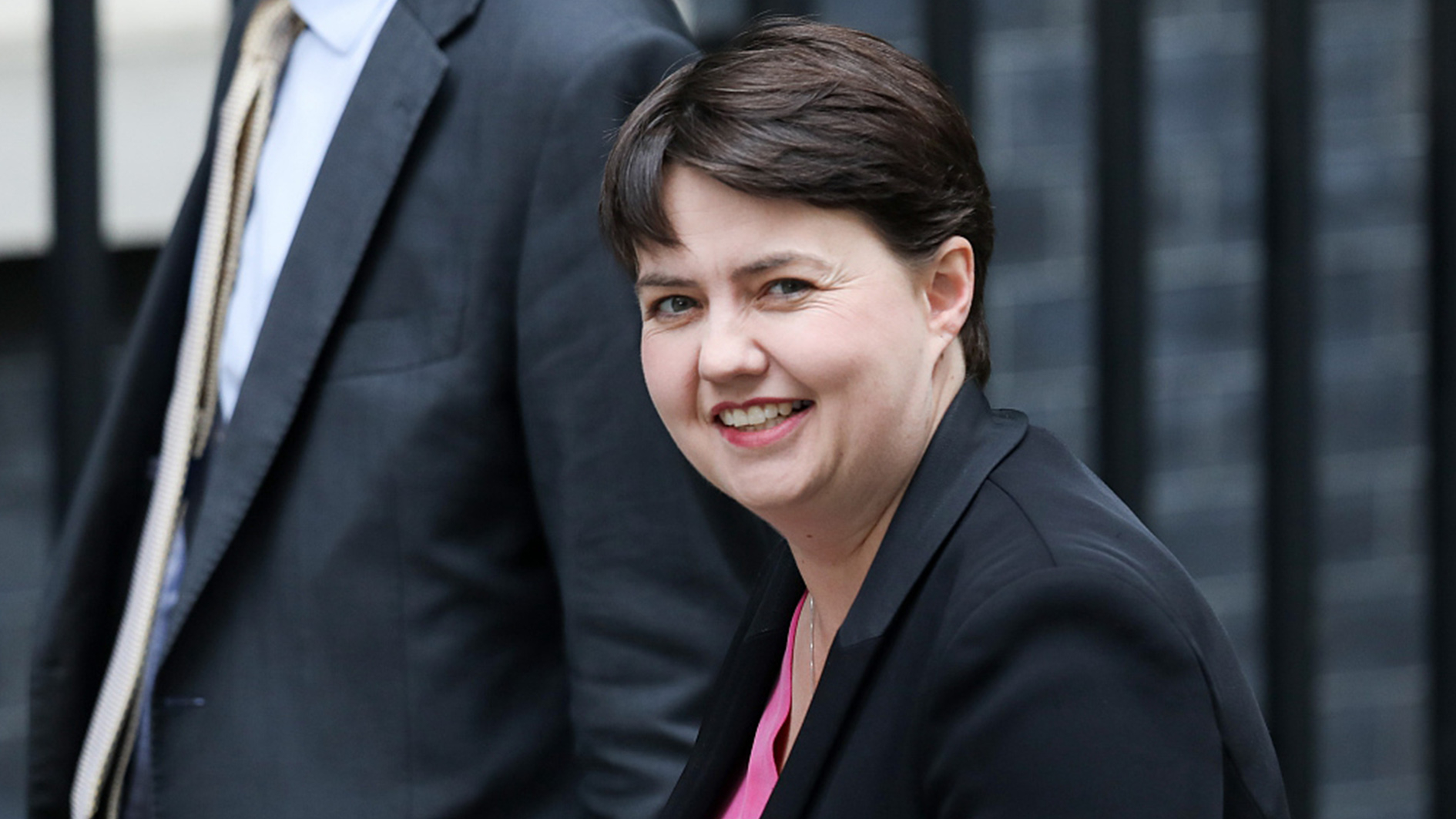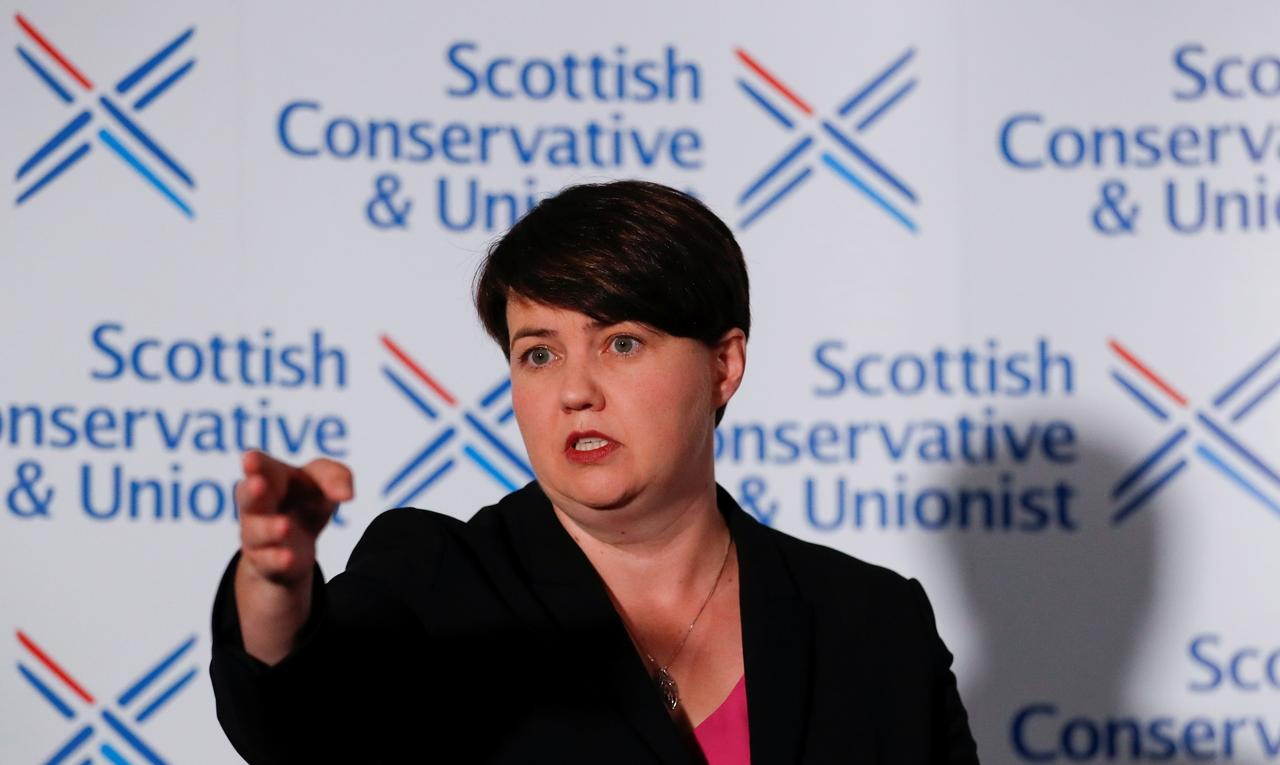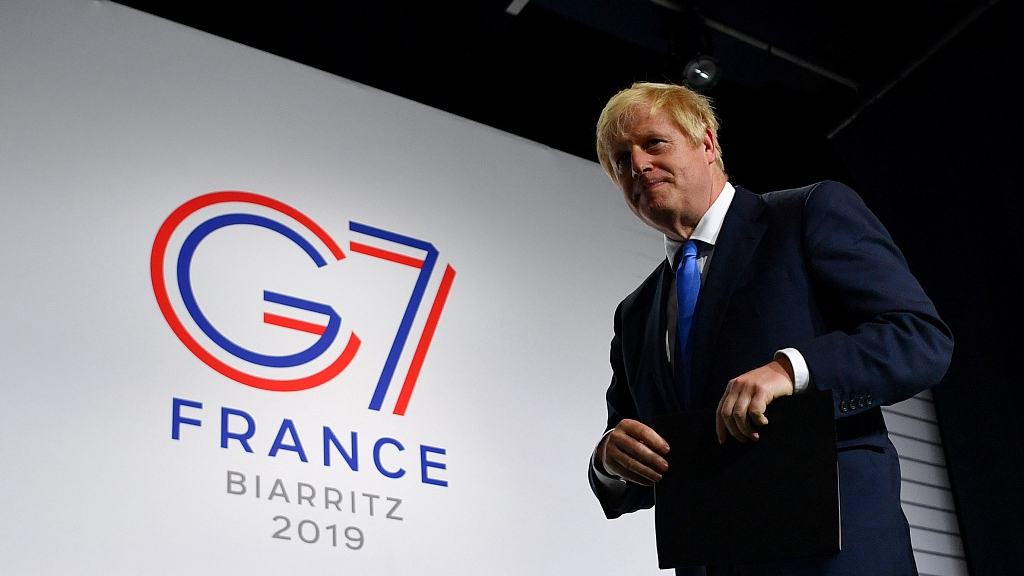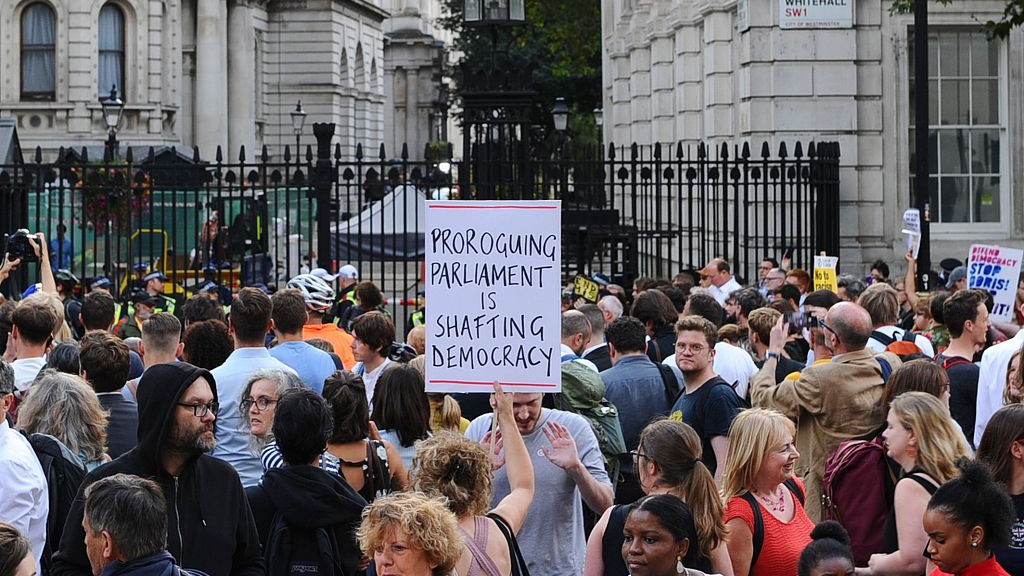

Ruth Davidson quit as leader of the Conservative Party in Scotland on Thursday, delivering a blow to British Prime Minister Boris Johnson after she led a resurgence for the party in Scotland during her eight years in charge.
Davidson, who provided a counterweight to Nicola Sturgeon's Scottish National Party and won key seats that kept the Conservatives in power, said she felt conflicted over Brexit and she wanted to put her family first for once.
The 40-year-old said it had been the "privilege of her life" to serve as leader and to have campaigned to keep Scotland in the UK in the independence referendum in 2014.

Leader of the Scottish Conservative Party Ruth Davidson delivers a statement at Holyrood in Edinburgh, Scotland, August 29, 2019. /Reuters Photo
She said it had been no secret that she had felt conflicted over the result of the Brexit referendum two years later. She backed "Remain", as did the majority of Scottish voters.
"I believe two referenda have split Scotland and indeed opinion in the UK, and I am convinced that referenda should be used to affirm public opinion but not as a way for political leaders to fail to lead," she told reporters.
"Respect is what is missing from our debates, and without respect you cannot have understanding and you cannot unite, which is what we in Scotland and in the UK need to do."
Davidson's straight-talking manner and ribald sense of humor made her a favorite of moderate Conservatives but also popular far beyond the core Conservative electorate.
She had attempted to chart a course that recognized and respected the Brexit referendum result, she said, while seeking to mitigate risks for key Scottish businesses and sectors.
Davidson said Johnson had looked her in the eye and "categorically assured" her he was working to get a deal.

Johnson suspending UK parliament faces wide protests
Johnson has said Britain will leave the EU with or without a deal on Oct. 31, and on Wednesday he enraged opponents by limiting parliamentary time to halt no deal. But the move ahead of the October 31 Brexit date sent shockwaves through British politics.
Read more:
UK PM to suspend parliament until Oct. 14
Johnson's opponents labelled the suspension of parliament a "coup" and a "constitutional outrage."
It prompted immediate court bids in London, Edinburgh and Belfast to halt the process.
An interim ruling is expected in the Edinburgh case on Friday.
Major protests were planned for Saturday as politicians scrambled for ways to counter Johnson.
The leaders of the six opposition parties in parliament condemned Johnson's "undemocratic" actions in a joint statement, saying they believed a majority of MPs were against the move.
"We demand that the prime minister reverses this decision immediately or allows MPs to vote on whether there should be one," they said of the suspension.
"The prime minister is shutting down parliament with the sole aim of stopping MPs from avoiding a no-deal Brexit.
"Voters are being deprived of the opportunity to have their representatives hold the government to account."

Labor Leader Jeremy Corbyn looks at the Toddbrook Reservoir that was damaged in heavy rainfall, during a visit to the village of Whaley Bridge in Derbyshire, August 5, 2019. /VCG Photo
Labor opposition leader Jeremy Corbyn said he would try to start a parliamentary process that would allow Johnson's opponents to legislate to prevent Britain leaving the EU without a deal and to stop the suspension of business.
Corbyn is also mulling a no-confidence vote in Johnson's Conservative government, which commands a fragile 320 to 319 majority.
Former Conservative finance minister Ken Clarke, parliament's longest-serving MP, has been touted as a unity figure to lead a temporary alternative government.
If it could lead to a "sensible outcome of the present crisis, then yes," Clarke said of the idea.
As for voting to bring down his own government, Clarke told ITV television: "If it's the only way of stopping us plunging into the disaster of a no-deal Brexit, then yes."
In Scotland's highest civil court, 75 parliamentarians are seeking an interim interdict that would stop Johnson from suspending parliament pending a final decision on the case.
An online petition seeking to block the decision unless Brexit is delayed or cancelled had garnered more than 1.5 million signatures on Thursday.

Thousands of people protested Wednesday in London, Manchester, Edinburgh and other cities.
General protests are planned outside parliament and around Britain on Saturday.
After its longest session in nearly 400 years, parliament will now close in mid-September and reopen on October 14, just over two weeks before Brexit.
The House of Commons typically goes into recess around the annual party conference season, which kicks off on September 14 and ends on October 2, but critics slam this lengthier break.
(With input from AFP, Reuters)

Copyright © 2018 CGTN. Beijing ICP prepared NO.16065310-3
Copyright © 2018 CGTN. Beijing ICP prepared NO.16065310-3